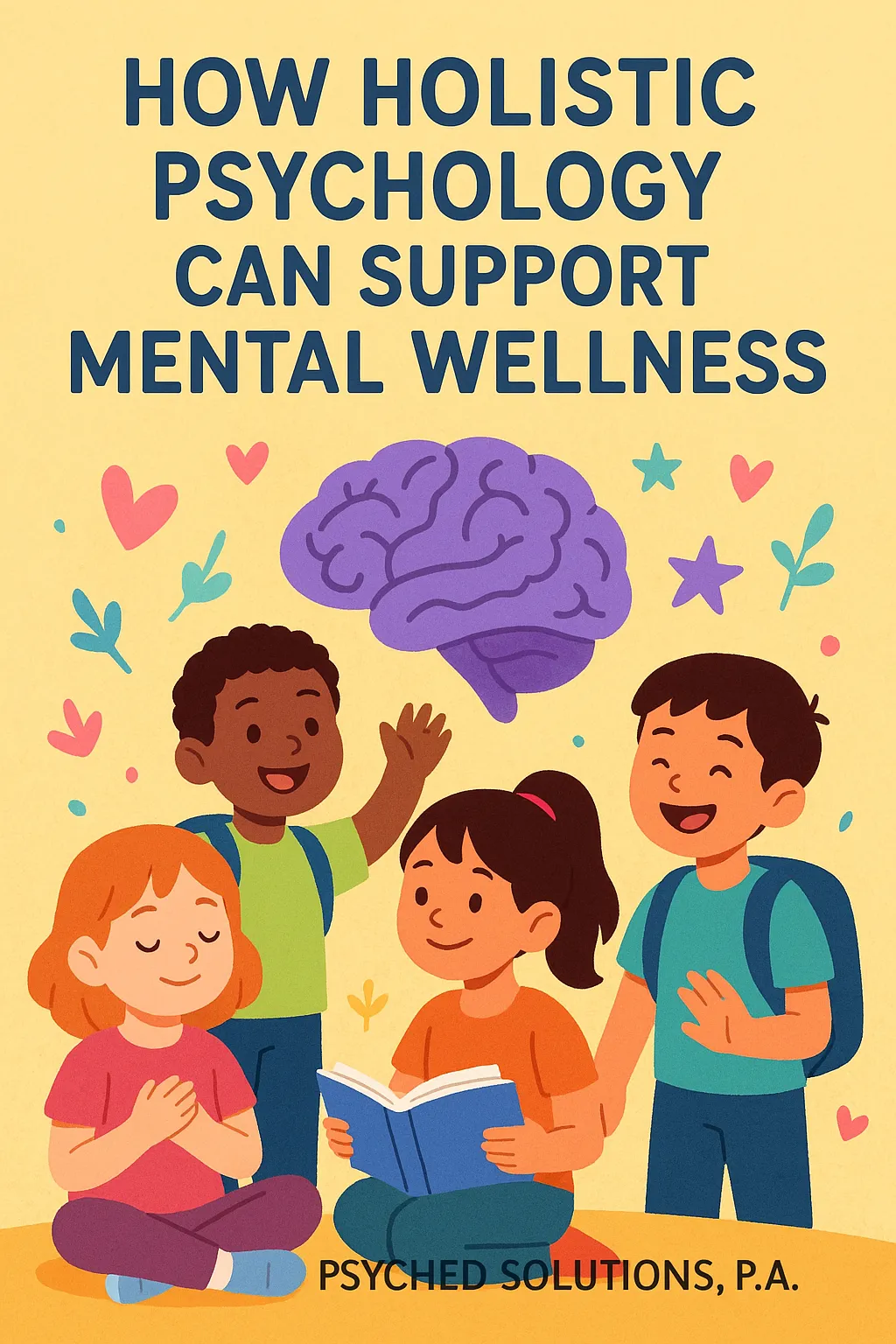
How Holistic Psychology Can Support Mental Wellness
How Holistic Psychology Can Support Mental Wellness in Schools
As a school psychologist, I see every day how important mental wellness is for children and adolescents. While traditional psychology often focuses on addressing symptoms, holistic psychology takes a broader view. It looks at the whole child—mind, body, emotions, relationships, and environment. This perspective can be especially powerful in supporting students’ growth and well-being.
What is Holistic Psychology?
Holistic psychology emphasizes that mental wellness isn’t just about thoughts or behaviors in isolation. Instead, it considers how multiple factors interact:
Mind: thoughts, learning, resilience, and coping skills
Body: nutrition, sleep, exercise, and physical health
Emotions: understanding feelings and developing emotional regulation
Relationships: peer connections, family support, and teacher-student interactions
Environment: the school climate, home setting, and community influences
Why It Matters in Schools
Children and adolescents spend much of their lives in school. By integrating holistic psychology into the educational setting, we can:
Promote resilience – teaching students strategies for stress management, mindfulness, and problem-solving.
Strengthen social connections – supporting peer relationships and inclusive environments.
Encourage healthy habits – helping students recognize how sleep, nutrition, and movement affect their focus and mood.
Foster self-awareness – guiding students to identify strengths, emotions, and personal values.
Address challenges early – noticing warning signs and providing preventive support rather than waiting for crises.
Practical Approaches in the Classroom
Incorporating mindfulness breaks during the school day.
Building social-emotional learning (SEL) into lessons.
Encouraging collaborative activities that promote teamwork and empathy.
Creating safe spaces where students feel comfortable expressing their feelings.
Final Thoughts
Holistic psychology reminds us that students are more than their grades or behaviors—they are whole individuals with complex needs. By supporting all aspects of their well-being, we can nurture not only academic success but also lifelong mental wellness.
📌 Disclaimer: This blog is for educational purposes only. It does not provide medical or psychological treatment advice.
